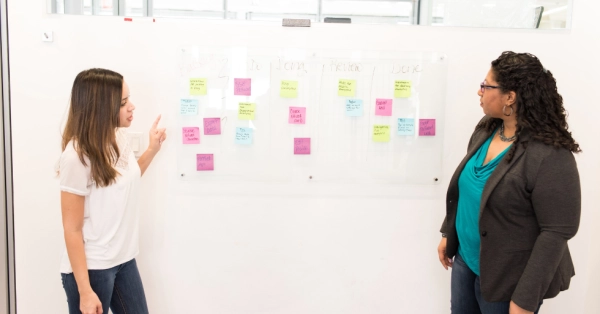Once you've found the right people, who are now part of your team, it's time to get down to business. And since a business grows together with the people who build it, it is important to allocate resources for the development of your team.

I have seen too many fantastic dreams left at the idea level due to the lack of colleagues or people to contribute to the project. And I have also seen many great organizations frozen in a small development stage just because the entrepreneur did not have a team to rely on. Sooner or later, we all pass the "team test", and those who do not pass the test remain small or perish as organizations.
What does team mean?
I'm going to give you the definition Teresa, my 6-year-old girl, gave me in an answer to the question "What do you think is the secret of a successful team?" And she said, I quote: "If in a team, everyone wants to do whatever they want - one wants something, another wants something else, one wants to go somewhere, another wants to eat a biscuit, and another is late... you can never have a team. Everyone has to want the SAME THING.”
So let's start from this definition Teresa gave us. A team is a group where EVERYONE wants the same thing – their own development and the development of the business.
Let's assume that your team is already formed. Whether it is made up of employees or friends, the team formed. Now the question remains what do we do next and what recipes should we apply?
5 principles - team growth lessons
-
Need is the best teacher
What I’ve learned, as a father, is that you can't teach children how to walk. It’s up to them to learn. The same goes for people, you cannot develop them, they are the only ones who can choose to develop.
I have come across many organizations where the entrepreneur was a sort of hero figure who stifled any chance of growth in their colleagues because THEY had to save the day every time.
It's hard to tell when you should and when you shouldn’t intervene, but most of the time it's more valuable to let your team members do it, see the result, and then internalize the learning loop. I have seen entrepreneurs take a younger colleague along to visit a customer and once they get there they take over the conversation, offer discounts (exceeding the established internal grid), and build a direct personal relationship with the customer relying on the surplus of maturity and authority they have. The junior colleague will obviously learn NOTHING from that meeting. On the contrary, they will accumulate frustration and bitterness. This is a classic example of a hero figure entrepreneur who DOES NOT give others space to grow. So, don't forget, NEED is the best teacher.
-
Trigger growth experiences for your team beyond the day-to-day business
In “Școala de Valori” we bring external guests to our meetings every month. We organize debates on sensitive topics or moral dilemmas. We organize development programs - first aid courses, fundraising courses, sales courses. We organize meetings with the beneficiaries of our programs, not only to learn, but also to get in touch with the results of our work. And we do it both when things look great and when they do not look that great. We organize "Fuck Up Nights" - if you are not familiar with the concept, you can find further info on the internet at www.fuckupnights.com
You may feel like you don't have time for that. The business needs your full attention, especially in the beginning. But if you don't take the time to organize a learning environment, it won't happen by itself. Challenge learning monthly!
-
Create a team development fund
Every year set aside a specific amount of money that will be used for the development of the team. At the end of the year you will know how much money you have spent on it and you can ask yourself how well was that money was spent. Clayton Cristensen - professor emeritus at Harvard University has published a book - "How Will You Measure Your Life?" where he says that in your personal life, just as in the company strategy, you must put your money and resources to use where you say it is important - Put your money where your mouth is! Set up a development fund, evaluate the expenditure and the impact at the end of the year.
-
Be a personal example of personal development and growth
You cannot ask others to do what you are NOT willing to do. Read books – and share what you've learned with others. Bring the books to the office and ask them to read them too.
Participate in events, courses, seminars and share with your colleagues what you have learned and what new things you have understood about the world. Send your colleagues to events and courses - using the development fund. Ask them to share what they have learned. Lead by example!
-
Have patience and trust
Some children start walking when they are 1 year old. Others start when they are 10 months old. Others learn late, after 18 months. Would you yell at your child because they stumble a lot? Or because your back hurts because you have to stay bent to one side?
Growth and development takes time. But if you use the right mix of need, challenged opportunities, allocated funds, personal example and patience, good things happen.














